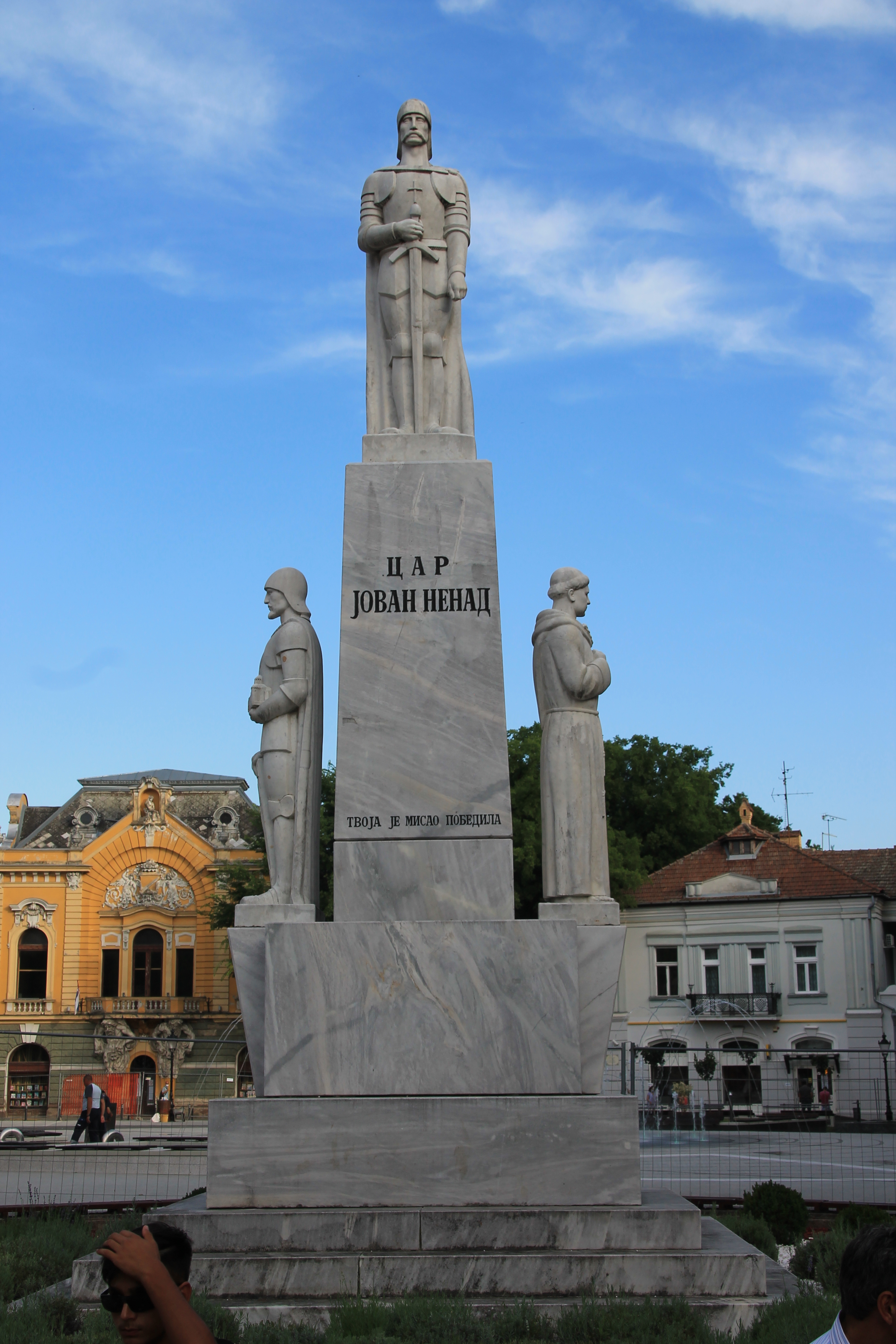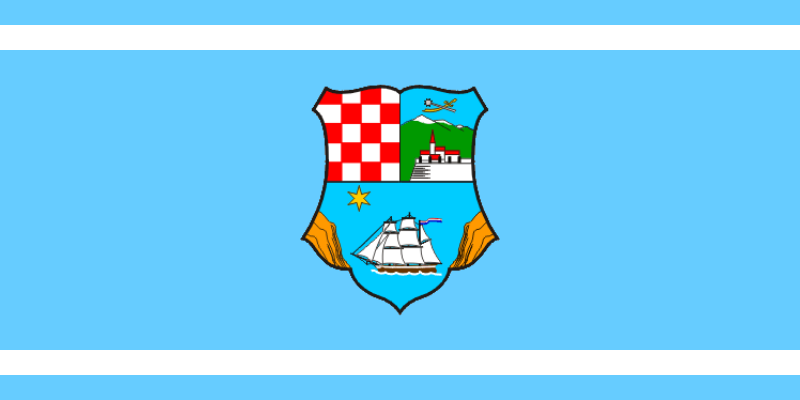|
Rani Mraz
Rani Mraz (Serbian Cyrillic: Рани Мраз; trans. ''Early Frost'') were a former Yugoslav rock band from Novi Sad, formed in 1977 by former Žetva member Đorđe Balašević. During the initial period, the band went through several lineup changes, until Balašević and female singer Biljana Krstić remained the only official members of the band. The two released two studio albums under the name Rani Mraz, before officially dissolving in 1981. Band history Rani Mraz was formed at the end of 1977 by former Žetva members Đorđe Balašević and female vocalist Verica Todorović. The first lineup of the band also featured the guitarist Vladimir Knežević "Knez". The band had their first public appearance in December 1977 at the Sportsman of the Year Award ceremony, held in Belgrade's Pionir Hall, where they performed Žetva hit "U razdeljak te ljubim" ("I Lay a Kiss on Your Parting"), with alternative lyrics and entitled "U levicu te ljubim" ("I Lay a Kiss on Your Left Hand ... [...More Info...] [...Related Items...] OR: [Wikipedia] [Google] [Baidu] |
Bilja Krstić
Biljana "Bilja" Krstić (Serbian Cyrillic: Биљана "Биља" Крстић, Serbo-Croatian pronunciation: [bǐʎana bǐːʎa kř̩ːstitɕ]; born 9 November 1955) is a Serbian singer. She was born in 1955 in Niš and brought up on the folk traditions of central Serbia. Biljana first studied music in Niš and continued her education in Belgrade to study music at the Belgrade University of Arts. Upon graduating in Belgrade she set out on an extremely successful career in music. To date she has released seven albums and has written scores for such films as Savior, Zona Zamfirova and The Man Who Defended Gavrilo Princip. She lives with her two daughters in Belgrade. Biography Bilja has been on the SFR Yugoslav pop and rock scene, Yugoslav pop scene for a long time. Her stage experience started at a very young age in Chorus of Youth; later, in the 1970s, she was a member of the cult bands ''Suncokret'' and ''Rani Mraz'', led by Bora Đorđević and Đorđe Balašević respective ... [...More Info...] [...Related Items...] OR: [Wikipedia] [Google] [Baidu] |
Subotica
Subotica ( sr-cyrl, Суботица, ; hu, Szabadka) is a List of cities in Serbia, city and the administrative center of the North Bačka District in the autonomous province of Vojvodina, Serbia. Formerly the largest city of Vojvodina region, contemporary Subotica is now the second largest city in the province, following the city of Novi Sad. According to the 2011 census, the city itself has a population of 97,910, while the urban area of Subotica (with adjacent urban settlement of Palić included) has 105,681 inhabitants, and the population of metro area (the administrative area of the city) stands at 141,554 people. Name The name of the city has changed frequently over time.History of Subotica Retrieved 8 September 2022. The earliest known written name of the city was ''Zabotka'' or ''Zabatka'', [...More Info...] [...Related Items...] OR: [Wikipedia] [Google] [Baidu] |
Omladinski Festival
Festival Omladina (English: ''Youth Festival''), also known as Omladinski Festival, is a music festival held in Subotica, Serbia. The festival was founded in 1961 as a competition of young composers of popular music. Their compositions were initially performed by pop singers, but soon the performers of competing compositions became rock bands. In the 1970s, the non-competitive part, featuring established rock acts, was added to the program, and in the 1980s the festival became a competition of young rock bands. During the years, some of the most notable acts of the Yugoslav pop and rock scene performed on the festival. In 1990, at the beginning of the breakup of Yugoslavia, the festival ceased to exist. In 2011 the festival anniversary was celebrated with a concert of famous acts who made their first steps on the festival, and in 2012 the festival was reestablished. 1961 The festival was founded by the members of Mladost (''Youth'') Society for Culture and Arts, as a competitio ... [...More Info...] [...Related Items...] OR: [Wikipedia] [Google] [Baidu] |
Socialist Realism
Socialist realism is a style of idealized realistic art that was developed in the Soviet Union and was the official style in that country between 1932 and 1988, as well as in other socialist countries after World War II. Socialist realism is characterized by the depiction of communist values, such as the emancipation of the proletariat. Despite its name, the figures in the style are very often highly idealized, especially in sculpture, where it often leans heavily on the conventions of classical sculpture. Although related, it should not be confused with social realism, a type of art that realistically depicts subjects of social concern, or other forms of "realism" in the visual arts. Socialist realism was made with an extremely literal and obvious meaning, usually showing an idealized USSR. Socialist realism was usually devoid of complex artistic meaning or interpretation. Socialist realism was the predominant form of approved art in the Soviet Union from its development in t ... [...More Info...] [...Related Items...] OR: [Wikipedia] [Google] [Baidu] |
People's Liberation War (Yugoslavia)
World War II in the Kingdom of Yugoslavia began on 6 April 1941, when the country was swiftly conquered by Axis forces and partitioned between Germany, Italy, Hungary, Bulgaria and their client regimes. Shortly after Germany attacked the USSR on 22 June 1941, the communist-led republican Yugoslav Partisans, on orders from Moscow, launched a guerrilla liberation war fighting against the Axis forces and their locally established puppet regimes, including the Axis-allied Independent State of Croatia (NDH) and the Government of National Salvation in the German-occupied territory of Serbia. This was dubbed the National Liberation War and Socialist Revolution in post-war Yugoslav communist historiography. Simultaneously, a multi-side civil war was waged between the Yugoslav communist Partisans, the Serbian royalist Chetniks, the Axis-allied Croatian Ustaše and Home Guard, Serbian Volunteer Corps and State Guard, Slovene Home Guard, as well as Nazi-allied Russian Protective Co ... [...More Info...] [...Related Items...] OR: [Wikipedia] [Google] [Baidu] |
Josip Broz Tito
Josip Broz ( sh-Cyrl, Јосип Броз, ; 7 May 1892 – 4 May 1980), commonly known as Tito (; sh-Cyrl, Тито, links=no, ), was a Yugoslav communist revolutionary and statesman, serving in various positions from 1943 until his death in 1980. During World War II, he was the leader of the Yugoslav Partisans, often regarded as the most effective resistance movement in German-occupied Europe. He also served as the president of the Socialist Federal Republic of Yugoslavia from 14 January 1953 until his death on 4 May 1980. He was born to a Croat father and Slovene mother in the village of Kumrovec, Austria-Hungary (now in Croatia). Drafted into military service, he distinguished himself, becoming the youngest sergeant major in the Austro-Hungarian Army of that time. After being seriously wounded and captured by the Russians during World War I, he was sent to a work camp in the Ural Mountains. He participated in some events of the Russian Revolution in 1917 and the subs ... [...More Info...] [...Related Items...] OR: [Wikipedia] [Google] [Baidu] |
FK Vojvodina
Fudbalski klub Vojvodina ( sr-Cyrl, Фудбалски клуб Војводина), commonly known as Vojvodina and colloquially as Voša ( sr-Cyrl, Воша), is a Serbian professional football club based in Novi Sad, Vojvodina, the second largest city in Serbia, and one of the most popular clubs in the country. The club is the major part of the Vojvodina multi-sport club and currently the third oldest football club in the Serbian SuperLiga and the most successful football club in Serbia next to the rivals Crvena zvezda and Partizan Belgrade. In its long history, Vojvodina were one of the most successful clubs in the former Yugoslavia, winning two First League titles, in 1966 and 1989, were runners-up in 1957, 1962 and 1975, achieved 3rd place in 1992 and finished 5th in the competition's all-time table. Vojvodina were also runners-up in the Yugoslav Cup in 1951. They won the UEFA Intertoto Cup in 1976, the Mitropa Cup in 1977 and were also runners-up of the Mitropa C ... [...More Info...] [...Related Items...] OR: [Wikipedia] [Google] [Baidu] |
Association Football
Association football, more commonly known as football or soccer, is a team sport played between two teams of 11 players who primarily use their feet to propel the ball around a rectangular field called a pitch. The objective of the game is to score more goals than the opposition by moving the ball beyond the goal line into a rectangular framed goal defended by the opposing side. Traditionally, the game has been played over two 45 minute halves, for a total match time of 90 minutes. With an estimated 250 million players active in over 200 countries, it is considered the world's most popular sport. The game of association football is played in accordance with the Laws of the Game, a set of rules that has been in effect since 1863 with the International Football Association Board (IFAB) maintaining them since 1886. The game is played with a football that is in circumference. The two teams compete to get the ball into the other team's goal (between the posts and under t ... [...More Info...] [...Related Items...] OR: [Wikipedia] [Google] [Baidu] |
Slobodan Pavković
Slobodan Pavković (, ; born 24 October 1955) is a Serbian former football manager and player. Club career Born in Novi Sad, Pavković started out at his hometown club Vojvodina, making his Yugoslav First League debut in 1974. He helped the team win the 1976–77 Mitropa Cup. In 1978, Pavković was signed by Partizan, spending the next five seasons with the Belgrade club. He made two appearances in the title-winning 1982–83 season. After a brief spell at Galenika Zemun in the Yugoslav Second League, Pavković moved abroad to Sweden and joined Degerfors IF. International career At international level, Pavković played for the Yugoslavia under-18s at the 1974 UEFA European Under-18 Championship, where they lost 1–0 in the final to Bulgaria. He was later a member of the Yugoslavia under-21 team that won the 1978 UEFA European Under-21 Championship. Managerial career After hanging up his boots, Pavković was manager of several clubs in the Middle East. He also served as ma ... [...More Info...] [...Related Items...] OR: [Wikipedia] [Google] [Baidu] |
Opatija
Opatija (; it, Abbazia; german: Sankt Jakobi) is a town and a municipality in Primorje-Gorski Kotar County in western Croatia. The traditional seaside resort on the Kvarner Gulf is known for its Mediterranean climate and its historic buildings reminiscent of the Austrian Riviera. Geography Opatija is located northwest of the regional capital Rijeka, about from Trieste by rail and from Pula by road. The city is geographically on the Istrian peninsula, though not in Istria County. The tourist resort is situated on the Kvarner Gulf, part of the Adriatic coast, in a sheltered position at the foot of Učka massif, with the ''Vojak'' peak reaching at a height of . cesnus, the municipality had 10,661 inhabitants in total, of which 5,715 lived in the urban settlement. The town is a popular summer and winter resort, with average high temperatures of 10 °C in winter, and 32 °C in summer. Opatija is surrounded by beautiful woods of bay laurel. The whole sea-coast to the no ... [...More Info...] [...Related Items...] OR: [Wikipedia] [Google] [Baidu] |



